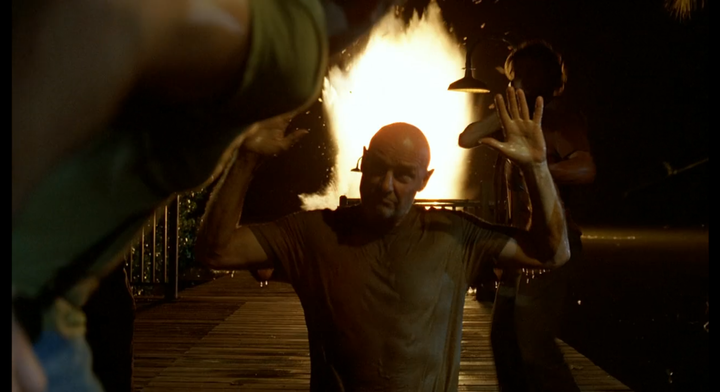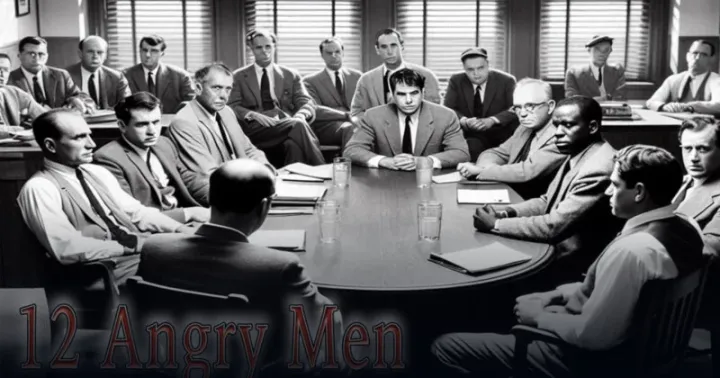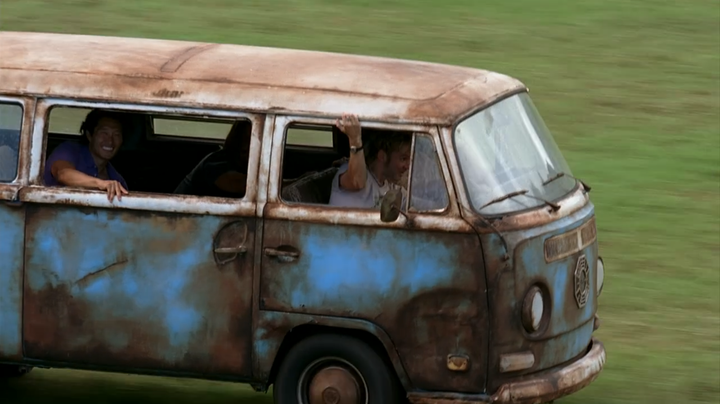Never Remember
Reflection & remembrance on the 22nd anniversary of a grim hinge in history. What we never remember, what we never forget

Well, as of tomorrow, it’ll have been 22 years.
I was at work when I first heard the news, three weeks into a new job that amazingly enough turned into my current ongoing career. The news came to me from one of my new coworkers on instant message while I was working at formatting some file or another, listening to music to make the busywork a little less tedious. Tori Amos was in my ears, and somewhere in there, as shock turned to dread, she sang can’t stop what’s coming, can’t stop what is on its way, and I think about that lyric now when I think about that day and everything that came after it, as the years pass and it becomes increasingly clear that this was a moment that acted as a great hinge of history, facilitating those who would swing shut a door that had been leading out onto a different potential future, a future which seemed at the time—at least to a fool like myself—to be wide open.
Who are those who wanted to swing it shut? I’ll try to remember.
Sometimes, after 22 years, we can forget, and I know we should never forget.
These days, when we talk about that day, that phrase—“Never Forget”—tends to bubble up. It’s a phrase often used when something awful has been done by people to other people, as a bulwark against it happening again. For years it was something that Jewish people and their allies against antisemitism would say when they referenced that heinous crime of the 20th century that was the Shoah, an almost incomprehensible monstrosity, the murder of over six million lovely humans who had been deemed unlovely by a popular supremacist authoritarian movement called fascism.
These days it’s perhaps more often utilized in memory of a great tragedy that happened 22 years ago this Monday, back at the dawn of the 21st century, the attacks on 9/11, when our own infrastructure was turned against us in an act of modern horror. So around this time of year, when we hear Never Forget, it’s most likely the attacks of that day being referenced. It’s on posters, and t-shirts, to help you remember. There’s a lawn decoration, I see, in the shape of the Twin Towers, which you can buy at Walmart, in case you think your neighbors might be in danger of forgetting to Never Forget. You can put it on your lawn, and maybe you’ll all remember who your enemies outside your borders are, and if you actually sometimes like to talk as if New York City is an unlivable hellscape full of your enemies inside your borders, maybe you’ll be so busy Never Forget-ing that you’ll forget to remember that you do that, at least until it is time for Halloween lawn decorations.
So that’s nice.
And who could argue with the call to Never Forget? There’s little value to forgetting. It sometimes seems a bit easy, though, that phrase, sort of like the one that says those who fail to learn the lessons of history are doomed to repeat it, and by easy I mean that it’s just as likely to be trotted out by those who seem to very much be hoping we will forget certain things, specifically so that they can run some of history’s worst plays by us again; who would very much like to go on doing awful things to other people they deem unlovely; who actually prefer the door to that more open future remain closed; who back at the dawn of the 21st century seemed so ready to close it that it almost appeared they had already manufactured the door and were waiting for somebody to put it on smooth enough hinges; who even today seem by their posture to be leaning against that door and bracing it shut.
And it seems like knowing all this is—much like all the terrible things many of us American Never Forget-ers actually have to say about the city that bore the brunt of that attack—something we are meant to Never Remember.
So yes, I agree we should Never Forget, but I'd like a bit more contemplation about what exactly it is we should Never Forget, and what it is that we seem to want to Never Remember.
So OK. Let’s do it. Let’s never forget.
I think I'll Never Forget how frightening that day was, or how terribly we were wounded. But I'll also Never Forget how much more terribly we wounded ourselves in the decades following, as we answered those who desired to create a world of strife by using the resources and power that our attackers lacked to deliberately, methodically, and systemically create a world of strife. I think I’ll Never Forget the ways we never pursued consequences for the country actually involved, which was pretty clearly Saudi Arabia, while aggressively and preemptively devastating a country that was not involved—Iraq—for generations.
I agree that we should never forget the victims on that day, but we should also Never Forget the way their deaths were cynically used as a pretext for a disastrous and murderous war, built on lies, nor should we ever forget the liars, and how they've all been laundered by our institutions, permitted to get away with one of the most consequential global crimes ever committed by U.S. citizens. I'll Never Forget how many people opposed our nationalized celebration of our own ability to bring death to others, and how thoroughly those millions of voices were minimized, and how even today the biggest cheerleaders of all our most horrible blunders and crimes receive the largest platforms upon which to manufacture consent in favor of other authoritarians, and against those who would oppose authoritarians.
I'll Never Forget the way the liars who had the steering wheel on that day bragged that they would create their own reality, and then proved it. I'll Never Forget how proud they were of making us a country that tortures. I'll Never Forget how lie led to lie led to lie, but never to consequences.
And I'll Never Forget how the liars who came after—even less scrupulous, even more flagrant—noticed there would be no crime that an authoritarian-facing Presidential power couldn't survive, no outrage that would not be normalized, no meat too raw for voters who craved bigotry, and pressed that advantage far past our breaking point, so that today we have an openly criminal party speaking and acting against any elections they do not win, and arguing in public and even in court that it isn’t illegal if a president does it, provided the president is an authoritarian.
I think we'd do well to Never Forget that the failure to prevent those attacks did not represent insufficiently aggressive national security, or insufficiently guarded borders, or insufficient domestic policing, or insufficient cruelty in our foreign policy, but rather insufficient attention paid to available information—an intelligence failure, in other words: a failure of awareness, of imagination, of competence. So it strikes me that those who still today insist on ignoring available information risk similarly catastrophic failures of our national intelligence.
That's what we ought, in my opinion, to Never Forget, after all these years.
And then, there are all those things we seem to Never Remember.
So many of us seem to Never Remember that the true value of power is only ever measured in how it protects those without power against power’s abuses, not how it can align with abusive power to better control those without any power.
To Never Remember that reality isn't multiple choice, that truth isn’t an opinion, science isn't optional, and that an expert isn't a charlatan just because they know more than you, any more than a charlatan is an expert just because they don't.
To Never Remember that opposing bigots isn't the cause of divisiveness; bigotry is.
To Never Remember that parroting fascists and neo-Nazis, or furnishing yourself with some excuse to support those who do, is supposed to earn you scorn and shunning.
To Never Remember that in all fights the difference between an aggressor and a defender matters, and it is those who are being presently attacked—not those who attack out of some fear of some future hypothetical—who deserve our defense, and that our fear of losing our advantages does not give us the irrevocable right to seek indiscriminate preemptive retribution.
To Never Remember that there is no true unity other than solidarity: a unity that acknowledges that all other people exist, and live, and matter.
And so many seem to Never Remember that truth is not just a matter of principle, but of survival: that a society founded on lies is an unsustainable society, and that unsustainable things cannot sustain.
To Never Remember that all human beings are connected to one another in humanity, that we are therefore all responsible for one another, and that those who insist on a world in which others do not matter will someday find they live in a world where they, too, do not matter.
To Never Remember that they are living works of art with intrinsic value, in possession of a human body which will eventually falter and fail, and that those who insist on a world in which everyone must earn life is a world in which they will eventually earn death.
To Never Remember that violence is a solution that redeems nothing, and represents nothing so much as a failure of imagination, and those who insist on living in a world of redemptive violence live in a world not of security but of danger; not of bravery but of fear.
And so many of us seem to want to Never Remember the way we once celebrated our better impulses, reached at ideals and truths, certainly not because we had grasped them, but perhaps because we dared hope to try.
To Never Remember what it is we told ourselves we were trying to be, however imperfectly, which is an open land of equality for all, a land of abundance rather than one of lack, a land that cared for all rather than a few, a land that valued people rather than wealth. And, while any of us who have come awake in recent decades know, it was never really true, even a sleeper like me can remember a time when we wanted it to be true, and saying so wasn’t a cause for scorn.
To Never Remember that the role of the journalist is not access, but to speak truth to power, and that doing so doesn't make them the enemy of the people, that bias against lies and for the truth is salutary, that divisiveness that divides between true and false is unifying.
To Never Remember that an open border represents a state of peace between neighbors and with the world, and so open borders ought to be our desire.
To Never Remember that calling ourselves a democracy didn't used to be a controversial opinion, or one that would face reflexive argument.
To Never Remember that we were once a nation that at least seemed to believe the great truth that diversity is strength.
These are some things I’m trying to Never Forget, all these years later.
Maybe Tori Amos was right on that day, and we couldn’t stop what was coming—as a matter of historical fact, we didn’t stop what was coming on that particular day. But I can never forget that what came next was largely our decision, and driven by our own momentum. Perhaps the terrorists in those planes managed to set onto hinges a massive door to blockade an empty frame leading into a better and more open future, but the choice to push it shut was made by authoritarian American power and, while that decision was opposed by millions of Americans, it was cheered on by millions more, and then it was narrowly ratified by American voters in the following election.
I remember it, those days when there seemed to be no door, just an open frame leading to a brighter day. It was a fool’s belief, I now know, a trick of my perspective. I am one who had been set front and center to make sure I was the first through, and I never thought to look beyond that frame. I know better now; the door has always been set on the hinges, and the opening was only ever a crack, and it wasn’t power that chose to open it, either. Twenty-two years ago, we may not have stopped what was coming, but the rough authoritarian thing that was on its way was the thing that was already here.
There were others who could have told me about how the door was always there on well-oiled hinges, and I’m sure there were many who did tell me, and that I chose not to heed them, because I believed that what I could see from the privilege of my vantage was the only thing there was to see.
Like I say, I was a fool.
So maybe I’m still a fool now, but I remember when the door was opened a crack, and I remember the vista beyond, and I think it was real.
Even if it was never real, I think it was a thing that could be; a true thing.
If we are willing to confront abusive power rather than join it, willing to be bravely open rather than fearfully closed, willing to understand that humanity is art rather than a cost, I suspect we could push it back open again.
And that would be something appropriate to Never Forget, if we are to honor this day, or any day.
The Reframe is totally free for all readers, and is supported with voluntary subscriptions by its readers.
If you find value in these essays, and only if you can afford to, please consider becoming a paid sponsor.
A.R. Moxon is the author of The Revisionaries, which is available in most of the usual places, and some of the unusual places, and is co-writer of Sugar Maple, a musical fiction podcast from Osiris Media which goes in your ears. See the city, see the zoo, traffic light won’t let him through.




Comments ()